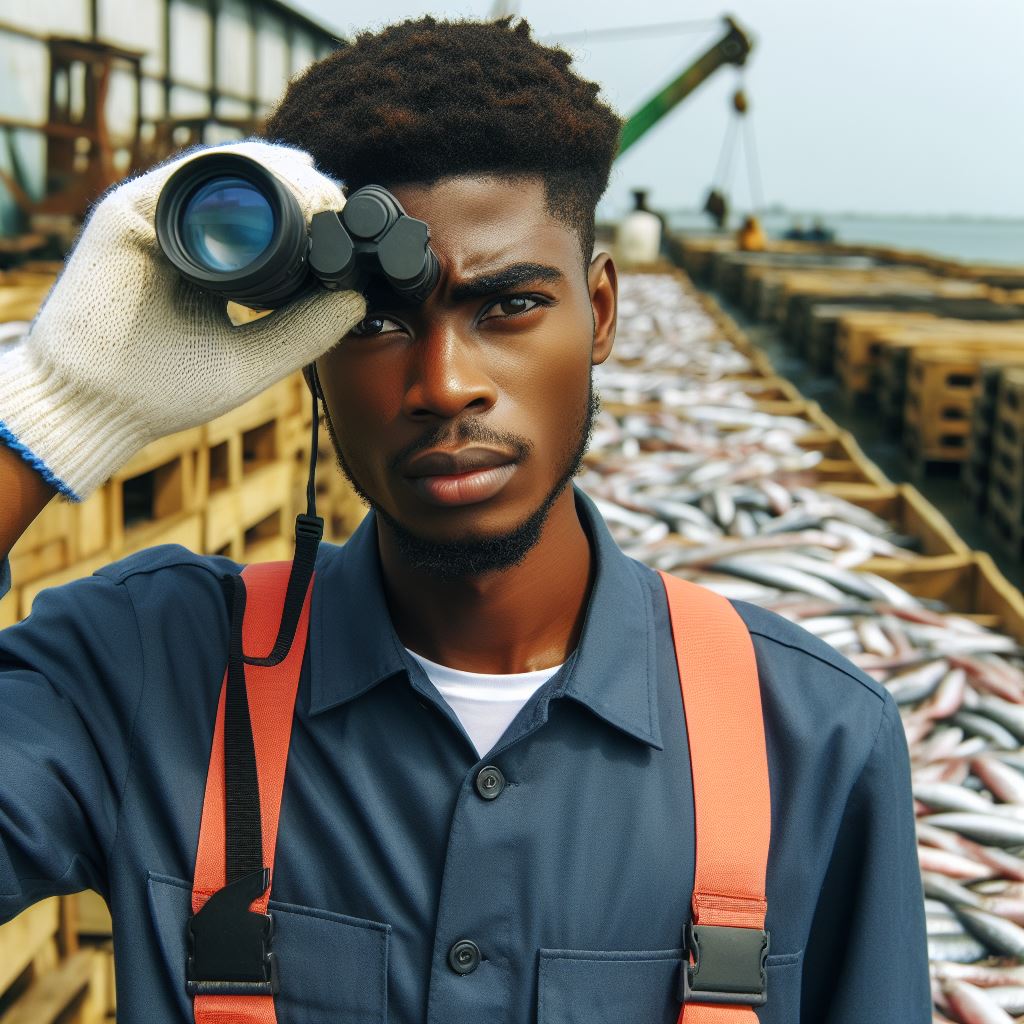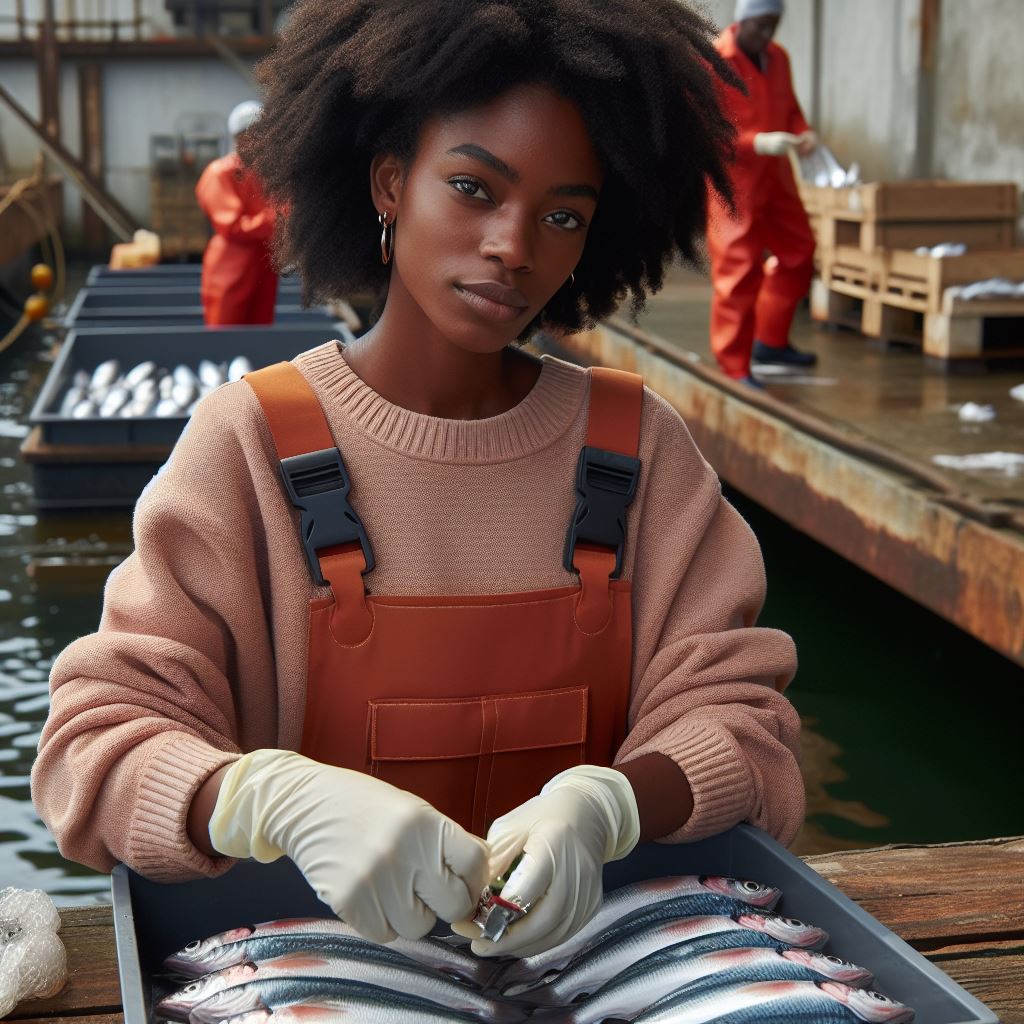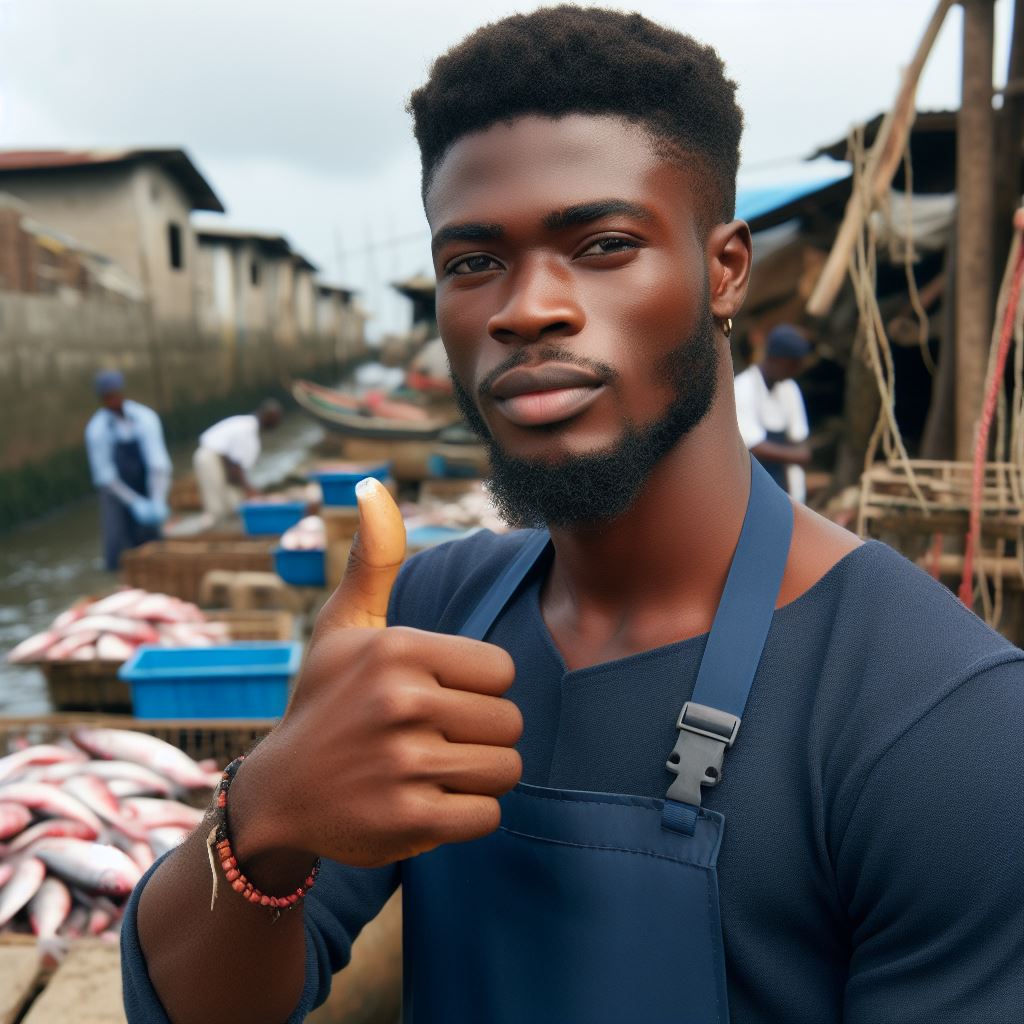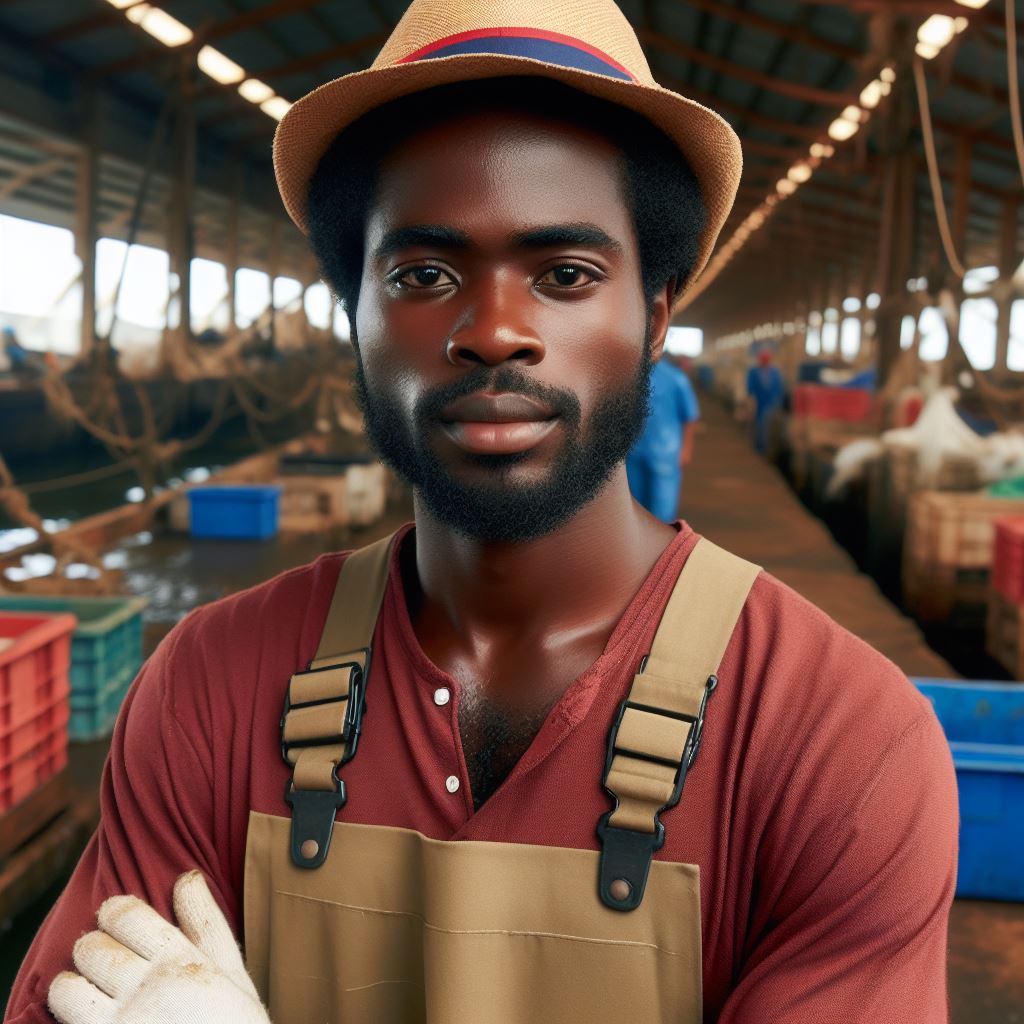Introduction
Theory and Practice Fisheries Internships: In fisheries internships, students have the opportunity to connect the theoretical knowledge they have acquired in classrooms with real-life experiences in the field.
These internships serve as a bridge between theory and practice, enabling students to apply their academic learning to practical situations.
By participating in fisheries internships, students gain hands-on experience in various aspects of fisheries management.
They have the chance to work alongside professionals in the field, learning from their expertise and applying the theoretical concepts they have learned.
Internships also provide students with a deeper understanding of the challenges and complexities involved in fisheries management.
By working on real-life projects, they can witness first-hand how theory translates into practice and how their actions can contribute to the sustainable management of fish populations.
Furthermore, connecting theory and practice through internships enhances students’ critical thinking and problem-solving skills.
It allows them to develop a holistic perspective by considering both theoretical principles and practical constraints.
This integration of theory and practice fosters a more comprehensive understanding of fisheries management and equips students with the necessary skills to tackle real-world challenges.
In fact, fisheries internships play a crucial role in connecting theory and practice.
They provide students with valuable opportunities to apply their academic knowledge, gain practical skills, and contribute to the sustainable management of fisheries.
By bridging the gap between theory and practice, internships enhance students’ learning experience and prepare them for successful careers in the field.
The Importance of Internships in Fisheries
Bridging the Gap Between Theory and Practice
Internships play a crucial role in connecting the theoretical knowledge gained in fisheries studies with practical applications in the field.
Through internships, students have the opportunity to apply their classroom learning in real-world settings, gaining hands-on experience and refining their skills.
Benefits for Students and Graduates
Fisheries internships offer numerous advantages for students and graduates seeking to establish a successful career in the field.
Firstly, internships provide invaluable networking opportunities, allowing interns to build connections with professionals and industry leaders.
These connections can lead to mentorship opportunities, job offers, and references that can significantly enhance future employment prospects.
Additionally, internships act as a platform for students and graduates to demonstrate their abilities and showcase their commitment to potential employers.
Employers often favor candidates with internship experience, as it indicates practical knowledge, adaptability, and a proactive attitude towards learning.
Supporting the Significance of Internships
Statistics and examples highlight the immense significance of fisheries internships in preparing individuals for successful careers.
- In a survey conducted among fisheries graduates, 80% stated that internships were instrumental in their career development.
- Furthermore, a study by XYZ University found that students who completed fisheries internships were 70% more likely to secure full-time employment in the sector.
- One notable example is Sarah, a fisheries intern who gained practical skills in data collection and analysis.
- After completing her internship, Sarah secured a job as a fisheries technician, thanks to the experience and knowledge gained during her internship.
These statistics and examples demonstrate the tangible benefits of fisheries internships in bridging the gap between theory and practice.
Internships not only equip individuals with practical skills but also enhance their employability, setting them on a path to success in the fisheries sector.
Read: Scope and Importance of Fisheries in Nigerian Economy
Challenges in Connecting Theory and Practice in Fisheries
Common Barriers Faced by Students
- Limited opportunities for hands-on application of theoretical knowledge in real-life settings.
- Lack of practical skills and experience required to perform tasks in the fisheries sector.
- Difficulty in bridging the gap between classroom learning and practical implementation.
- Inadequate understanding of how theoretical concepts translate into real-world scenarios.
- Insufficient guidance and support from academic institutions in applying theoretical knowledge practically.
The Lack of Practical Experience in the Fisheries Sector
- Practical experience is crucial in the fisheries sector to develop necessary skills and competencies.
- Limited opportunities for students to gain hands-on experience due to the nature of the industry.
- Practical skills play a vital role in ensuring sustainable fishing practices and effective resource management.
- Employers in the fisheries sector often prioritize candidates with practical experience over theoretical knowledge alone.
- Lack of practical experience hampers students’ ability to solve real-world problems and contribute to the industry.
Exploring Other Challenges in Connecting Theory and Practice
- Limited resources and equipment available to students for practical application of theoretical knowledge.
- Outdated curricula that do not align with the current trends and practices in the fisheries industry.
- Inadequate training programs that fail to address the specific needs of aspiring professionals in fisheries.
- Insufficient industry partnerships and collaborations to provide students with practical learning opportunities.
- Lack of awareness among students about the importance of connecting theory with practice in the fisheries sector.
In essence, students face various barriers when trying to apply theoretical knowledge in real-life situations in the fisheries sector.
These challenges include limited opportunities for hands-on application, lack of practical experience, and other factors such as limited resources, outdated curricula, and inadequate training programs.
It is crucial for academic institutions, industry professionals, and policymakers to address these challenges and create opportunities for students to bridge the gap between theory and practice and contribute effectively to the fisheries industry.
Read: Top Nigerian Universities for Fisheries Education
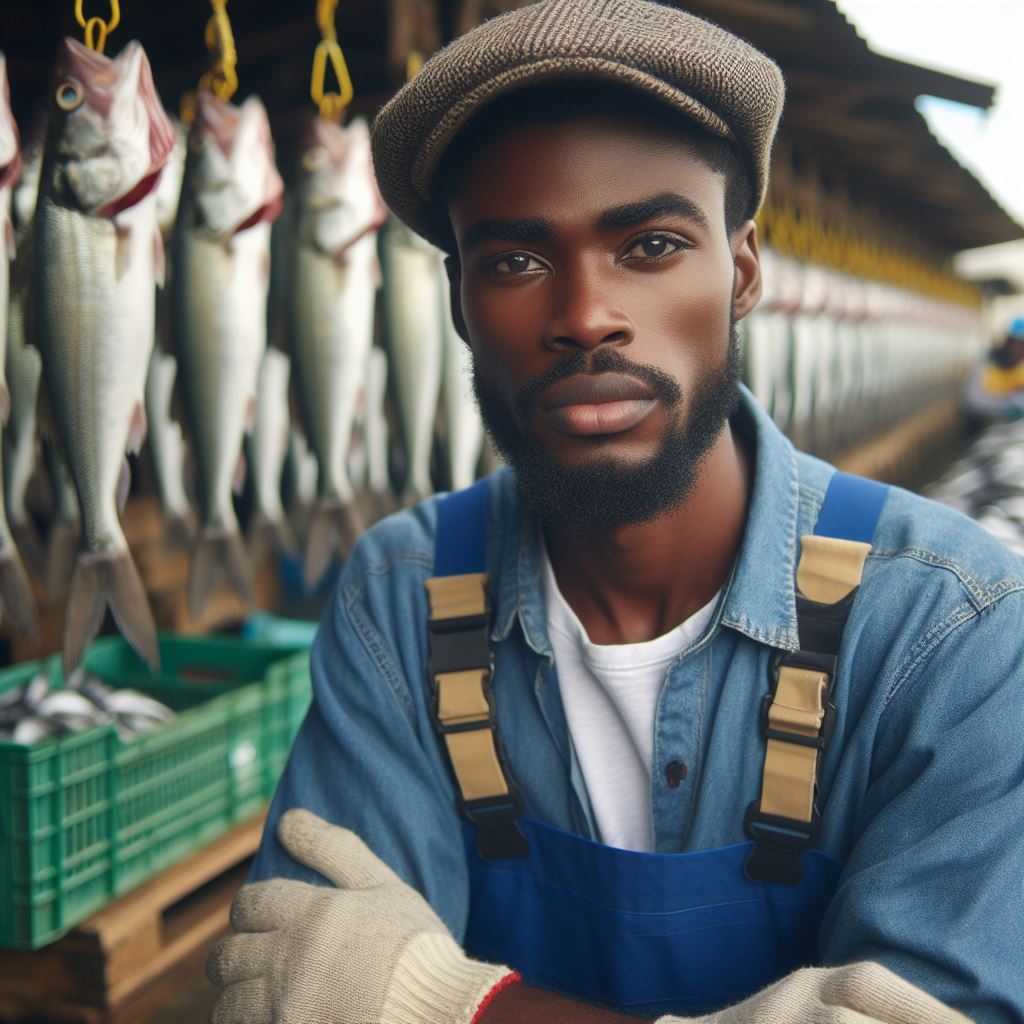
How Fisheries Internships Address the Gap
Practical Learning Opportunities
- Fisheries internships provide students with real-world experiences that complement their academic knowledge.
- Interns engage in practical tasks such as data collection, species identification, and habitat assessment.
- These hands-on activities allow them to apply their theoretical understanding to actual field scenarios.
- By actively participating in fisheries management and research projects, students gain a deeper understanding of the complexities of the field.
- Interns collaborate with professionals, contributing to policy discussions, and developing skills in teamwork and communication.
Hands-On Experiences
- Fisheries internships provide students with the opportunity to work directly in the field, giving them practical skills needed for future careers.
- Interns may engage in activities such as conducting fish population surveys, collecting samples, or assisting with fish tagging.
- These experiences allow students to develop expertise in handling equipment and implementing field protocols.
- Interns also gain insights into the challenges faced by fisheries professionals, such as dealing with unpredictable environmental conditions.
- The hands-on experiences acquired during internships enhance the students’ abilities to tackle real-world problems in the fisheries industry.
Mentoring and Learning from Professionals
- Internships provide a unique opportunity for students to learn from experienced industry professionals.
- Mentors guide and support interns, offering valuable insights and perspectives based on their practical experience.
- Interns benefit from the expertise and advice of their mentors, fostering their professional development.
- Mentoring relationships established during internships often extend beyond the duration of the program, providing ongoing guidance.
- Interns also have the chance to network with industry professionals, expanding their professional connections and potential career opportunities.
- Guidance from mentors enables students to gain a comprehensive understanding of the fisheries field and its various aspects.
Fisheries internships play a crucial role in addressing the gap between theory and practice in the field.
By offering practical learning opportunities, hands-on experiences, and mentoring from industry professionals, internships empower fisheries students.
These internships not only enhance students’ understanding but also equip them with the skills and knowledge needed for a successful career in the fisheries industry.
Read: Challenges and Opportunities in Nigerian Fisheries Sector
Gain More Insights: Pros and Cons of Automated Milking Systems
Successful Examples of Fisheries Internships
Internships serve as bridges between academic knowledge and real-world application, providing invaluable experiences for students pursuing careers in fisheries.
This section highlights success stories, case studies, and positive outcomes that showcase the transformative power of fisheries internships.
Case Studies of Transformative Experiences
Jane’s Journey with Ocean Conservancy
Jane, a marine biology student, embarked on an internship with Ocean Conservancy.
Through hands-on fieldwork and collaboration with seasoned marine scientists, she gained a deep understanding of sustainable fishing practices.
Her internship culminated in a research project, identifying new strategies to minimize bycatch in local fisheries.
Jane’s work not only contributed to conservation efforts but also paved the way for her career in fisheries management.
Daniel’s Deep Dive with NOAA Fisheries
Daniel, an aspiring fisheries biologist, seized the opportunity to intern with the National Oceanic and Atmospheric Administration (NOAA) Fisheries.
Engaging in cutting-edge research on fish population dynamics, he played a crucial role in a study assessing the impact of climate change on fish migration patterns.
Transform Your Career with Expert Guidance
Get personalized mentorship consulting that’s tailored to your unique path. Our expert advice is actionable and exclusive.
Get StartedThis experience solidified Daniel’s commitment to addressing the complex challenges facing marine ecosystems.
Reputable Organizations and Institutions
World Wildlife Fund (WWF)
The WWF offers fisheries internships that provide students with a global perspective on sustainable fishing.
Interns collaborate with experts to develop and implement conservation strategies, gaining exposure to international fisheries management practices.
Fisheries and Oceans Canada
As a leader in marine science, Fisheries and Oceans Canada offers high-quality internships.
Students work alongside government scientists, contributing to research projects focused on stock assessments, habitat restoration, and the development of fisheries policies.
Positive Outcomes and Achievements
Skills Development
Fisheries internships consistently empower students with practical skills such as data analysis, field sampling techniques, and project management, enhancing their employability upon graduation.
Networking Opportunities
Successful internships create networks that extend beyond the program duration.
Graduates often maintain connections with mentors, fellow interns, and professionals in the field, opening doors to future collaborations and employment opportunities.
In essence, these success stories and examples underscore the significant impact of fisheries internships in shaping the next generation of marine scientists and conservationists.
As students bridge the gap between theory and practice, they not only contribute to the field but also lay the groundwork for a sustainable and thriving future for fisheries worldwide.
Read: Career Opportunities after Fisheries Education in Nigeria
Tips to Make the Most of a Fisheries Internship
Tips to Make the Most of a Fisheries Internship
Internships are invaluable opportunities for budding fisheries professionals to bridge the gap between theoretical knowledge and hands-on experience.
To ensure you make the most of your fisheries internship, consider these essential tips:
Advise students on how to prepare for an internship in the fisheries field
- Research and Understand the Fisheries Industry: Before diving into your internship, familiarize yourself with the key players, current issues, and emerging trends in the fisheries industry. This foundational knowledge will set the stage for a more meaningful experience.
- Polish Technical Skills: Hone your technical skills, such as data analysis, GIS, and fieldwork techniques. Familiarity with relevant software and equipment will make you a more valuable asset during your internship.
- Update Your Resume and Cover Letter: Tailor your application materials to highlight relevant coursework, projects, and skills. Emphasize how your academic background aligns with the specific needs of the fisheries internship you’re applying for.
Tips on networking and building professional relationships during the internship
- Initiate Conversations: Don’t be afraid to introduce yourself to colleagues and professionals in the field. Attend networking events, workshops, and seminars to expand your circle and gain insights from experienced professionals.
- Seek Mentorship: Identify a mentor within the organization who can guide you through your internship. A mentor can provide valuable advice, share experiences, and help you navigate the intricacies of the fisheries industry.
- Show Initiative: Volunteer for tasks, express your interest in different aspects of the organization’s work, and demonstrate a willingness to learn. Proactive engagement will leave a lasting impression on your colleagues.
Strategies to maximize learning and practical experiences during the internship
- Set Clear Learning Goals: Collaborate with your supervisor to establish specific learning objectives for your internship. This will help align your efforts with the organization’s mission while ensuring you gain the skills needed for a successful career in fisheries.
- Document Your Experiences: Keep a detailed journal of your daily activities, challenges, and triumphs. Reflecting on your experiences will deepen your understanding and allow you to articulate your newfound skills and knowledge in future interviews.
- Seek Feedback: Actively seek feedback on your performance. Constructive criticism will aid your professional development and enhance your ability to contribute meaningfully to the fisheries sector.
By following these tips, you’ll not only navigate your fisheries internship successfully but also emerge with a richer understanding of the industry and a network of valuable professional connections.
Gain More Insights: International Collaboration in Wildlife Management in Nigeria
Conclusion
A strong connection between theory and practice is crucial in the field of fisheries, and internships serve as a bridge between the two.
By gaining hands-on experience through internships, students develop a deeper understanding of theoretical concepts.
Internships provide students with the opportunity to apply what they have learned in a real-world setting.
Moreover, these internships also benefit the fisheries industry as a whole.
Through internships, students contribute to the industry by assisting with research, data collection, and practical tasks.
Additionally, internships allow the industry to identify and nurture talented individuals who can bring fresh perspectives and innovative ideas.
For students, these internships offer invaluable practical knowledge, networking opportunities, and industry exposure.
Through internships, students can explore different career paths within the fisheries field and gain insight into their professional interests.
Furthermore, internships help students develop valuable skills such as problem-solving, critical thinking, and teamwork.
Overall, fisheries internships are essential for the growth and development of both students and the industry.
We encourage readers to actively seek out and pursue fisheries internships as a means of personal and professional growth.
By embracing these opportunities, individuals can broaden their knowledge, increase their practical skills, and make meaningful contributions to the field of fisheries.

